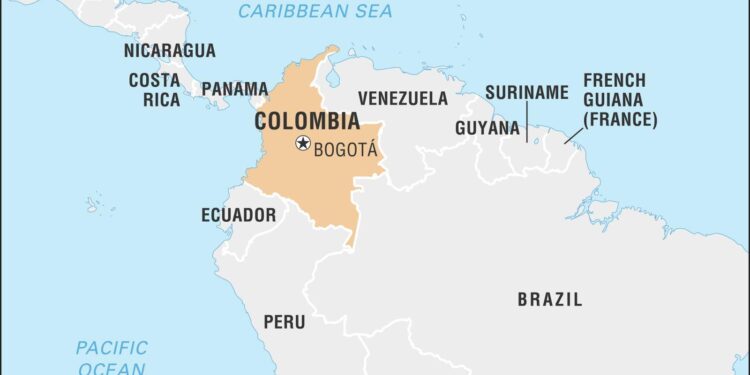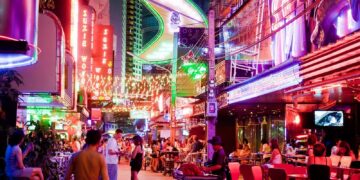Colombia Braces for Major National Strike Amid Growing Social Unrest
Colombia is on the brink of a profound social upheaval as it prepares for a nationwide 48-hour strike, initiated under the leadership of President Gustavo Petro. This mass mobilization emerges amid escalating tensions over economic reforms and social policies that many Colombians perceive as unjust. Across cities and rural areas alike, citizens are gearing up to participate in protests aimed at challenging systemic inequalities and advocating for enhanced public welfare programs. The strike’s consequences are expected to extend far beyond temporary disruptions, potentially reshaping Colombia’s political dynamics and influencing future government approaches to widespread dissatisfaction.
Mobilizing the Masses: A Unified Front Against Economic and Social Issues
The upcoming national strike represents a collective outcry against policies seen as exacerbating Colombia’s socio-economic challenges. Spearheaded by labor unions alongside progressive political groups, this movement calls attention to critical grievances including:
- Escalating inflation rates driving up everyday expenses
- Demand for stronger labor protections and job stability guarantees
- Environmental concerns, particularly regarding vulnerable populations affected by policy decisions
The streets will likely fill with demonstrators bearing signs and chanting slogans demanding urgent governmental response. This broad coalition spans diverse sectors of society, amplifying calls for meaningful reform through peaceful yet resolute action. Municipal authorities across major urban centers are preparing contingency plans—including potential curfews and increased law enforcement presence—to manage anticipated disturbances.
| Main Concerns | Consequences Highlighted |
|---|---|
| Economic Disparity | A growing divide between rich and poor; rising poverty levels affecting millions. |
| Healthcare Accessibility | An overstretched public health infrastructure struggling to meet demand. |
| Land Ownership Rights | The displacement of indigenous communities leading to loss of traditional livelihoods. |
President Petro Calls for Solidarity in Face of Economic Adversity
In an impassioned appeal, President Gustavo Petro has urged Colombians from all walks of life to unite against mounting economic pressures that threaten their quality of life. With inflation recently surpassing historic highs—reaching over 12% annually according to recent government data—and unemployment rates hovering near double digits, the urgency behind his message resonates deeply across the nation.[1]
“Our strength lies in our unity,” Petro stated during a televised address encouraging peaceful participation in the upcoming strike. “Together we can demand equitable solutions that restore dignity and opportunity.”
This coordinated protest aims not only at highlighting soaring costs but also at addressing broader social ramifications such as:
- The surge in living expenses: Basic commodities like food staples have seen price increases exceeding global averages due partly to supply chain disruptions post-pandemic.[2]
- The challenge of securing stable employment: Many Colombians face precarious work conditions or prolonged joblessness amid shifting economic landscapes.
- A rise in civic activism: The frequency of demonstrations reflects deep-rooted frustrations with perceived governmental inadequacies.
The administration advocates nonviolent demonstrations focused on constructive dialogue while businesses prepare contingency plans anticipating operational interruptions during these two days.
How Bogotá Residents Can Prepare for the Strike: Practical Tips Amid Anticipated Disruptions
Bogotá—the epicenter where much protest activity is expected—faces significant logistical challenges during this period. Residents should proactively plan around possible interruptions affecting daily routines:
- Navigating transportation hurdles: Public transit services may be limited or rerouted; alternatives like biking or carpooling can ease mobility constraints.
- Tapping into community networks: Joining neighborhood communication channels (e.g., WhatsApp groups) helps share timely updates about safe routes or emergency resources.
- Caring for local economies: Supporting small businesses impacted by reduced foot traffic fosters communal resilience.
- Ahead-of-time preparation: Stock essential supplies such as groceries or medications beforehand; remote work arrangements should be considered when feasible.
Maintaining composure near large gatherings is vital both personally and collectively—keeping distance reduces risks while promoting peaceful demonstration environments.
Conclusion: Colombia’s Critical Juncture as Nation Rallies For Change
The forthcoming national strike marks a pivotal moment reflecting deep-seated demands from Colombian society seeking justice amid widening inequalities. As citizens mobilize en masse—from bustling metropolitan hubs like Bogotá to remote rural communities—the outcomes will significantly influence political discourse moving forward.
Government responses combined with sustained civic engagement will determine whether this wave catalyzes lasting reforms addressing economic disparity, healthcare access deficiencies, land rights issues, among others.
International observers watch closely as Colombia navigates these turbulent times—a testament not only to its internal struggles but also its enduring spirit striving toward equity.
The City Paper Bogotá remains committed to delivering ongoing coverage filled with expert analysis on how these events shape Colombia’s future trajectory.















